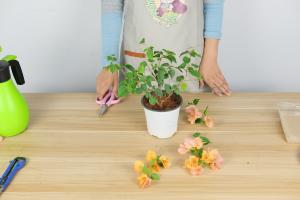Should I Put 7 Dust on My Small Tomato Plants?
Tomatoes are one of the most popular vegetables grown in home gardens. They are delicious and versatile, and growing them can be a rewarding experience. However, tomato plants can be vulnerable to a range of pests and diseases, which can harm or even kill the plants. One commonly used insecticide for tomato plants is 7 Dust, but is it the right choice for your small tomato plants?
What is 7 Dust?
7 Dust is a powdered insecticide that contains the active ingredient carbaryl. It is commonly used to control a range of insect pests, including aphids, caterpillars, and beetles. When applied to plants, 7 Dust coats the foliage and stems, creating a barrier that repels or kills insects on contact. It is usually applied using a hand-held duster, which allows you to distribute the powder evenly across the plant.
The Pros of Using 7 Dust
One of the main advantages of using 7 Dust is its effectiveness. It can quickly kill a range of insect pests, preventing them from damaging your plants. The application is easy and quick, and you can see the results almost immediately. In addition, 7 Dust is widely available and relatively inexpensive, making it a popular choice for home gardeners. For those who want to use organic pest control, there are also 7 Dust products that are certified organic.
The Cons of Using 7 Dust
While 7 Dust is effective against insect pests, it can also harm beneficial insects, such as bees and ladybugs. These insects are important pollinators and natural predators of pests. If you use 7 Dust indiscriminately, you may end up harming them unintentionally. In addition, carbaryl, the active ingredient in 7 Dust, is classified as a possible carcinogen by the EPA, which means it may increase the risk of cancer if you are exposed to it regularly. Finally, if you use 7 Dust too often, the pests may develop resistance, which can reduce its effectiveness.
Alternatives to 7 Dust
If you're looking for alternatives to 7 Dust, there are several organic pest control methods you can try. One is to use neem oil, which is derived from the neem tree and is effective against a range of insect pests. Another option is to use insecticidal soap, which is a natural soap that is toxic to insects but harmless to plants. You can also use physical barriers, such as row covers, to protect your plants from pests.
Conclusion
So, should you put 7 Dust on your small tomato plants? The answer depends on your situation. If you have a serious pest infestation and want a quick and effective solution, 7 Dust may be the right choice. However, if you want to take a more holistic approach to pest control or have concerns about the potential risks of 7 Dust, there are several organic alternatives you can try. Ultimately, the best approach is to carefully consider your options and choose the one that is right for you and your plants.

 how many times do yo...
how many times do yo... how many planted tre...
how many planted tre... how many pine trees ...
how many pine trees ... how many pecan trees...
how many pecan trees... how many plants comp...
how many plants comp... how many plants can ...
how many plants can ... how many plants and ...
how many plants and ... how many pepper plan...
how many pepper plan...
































